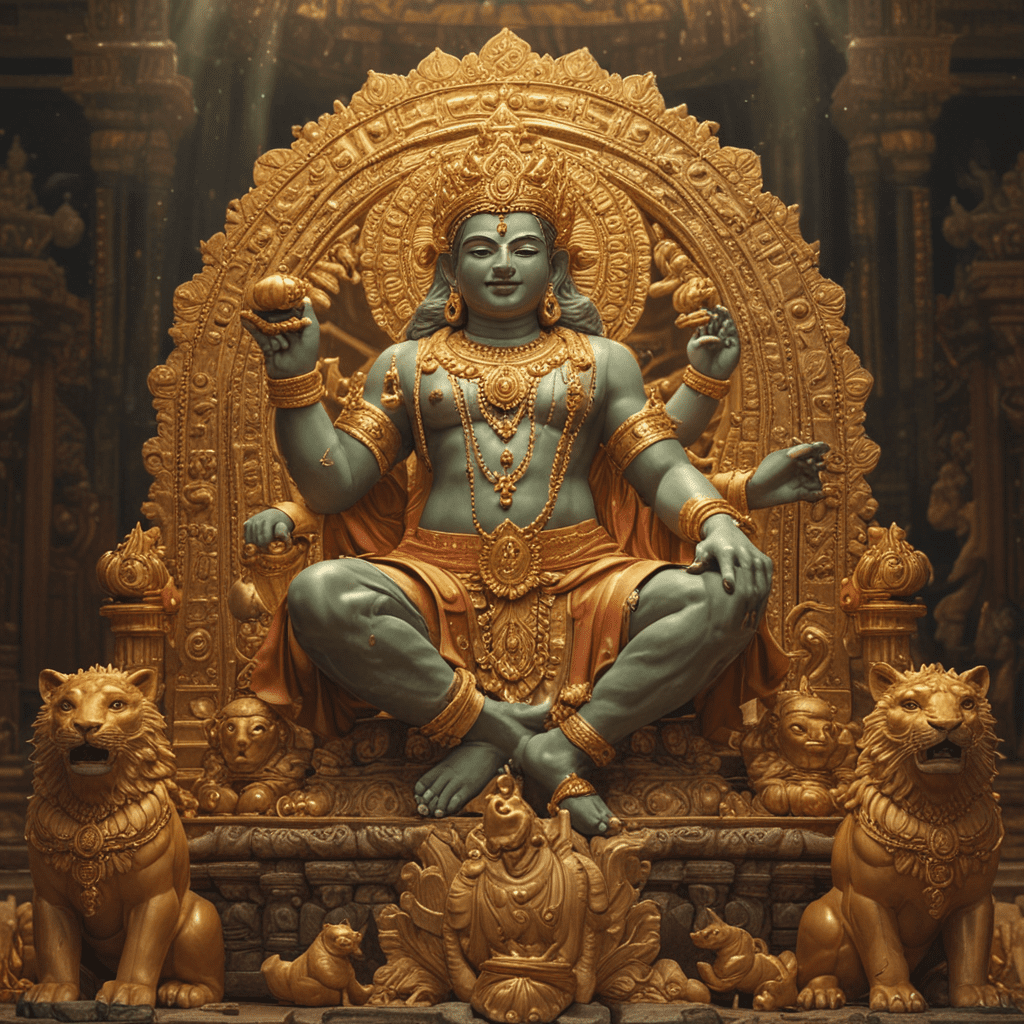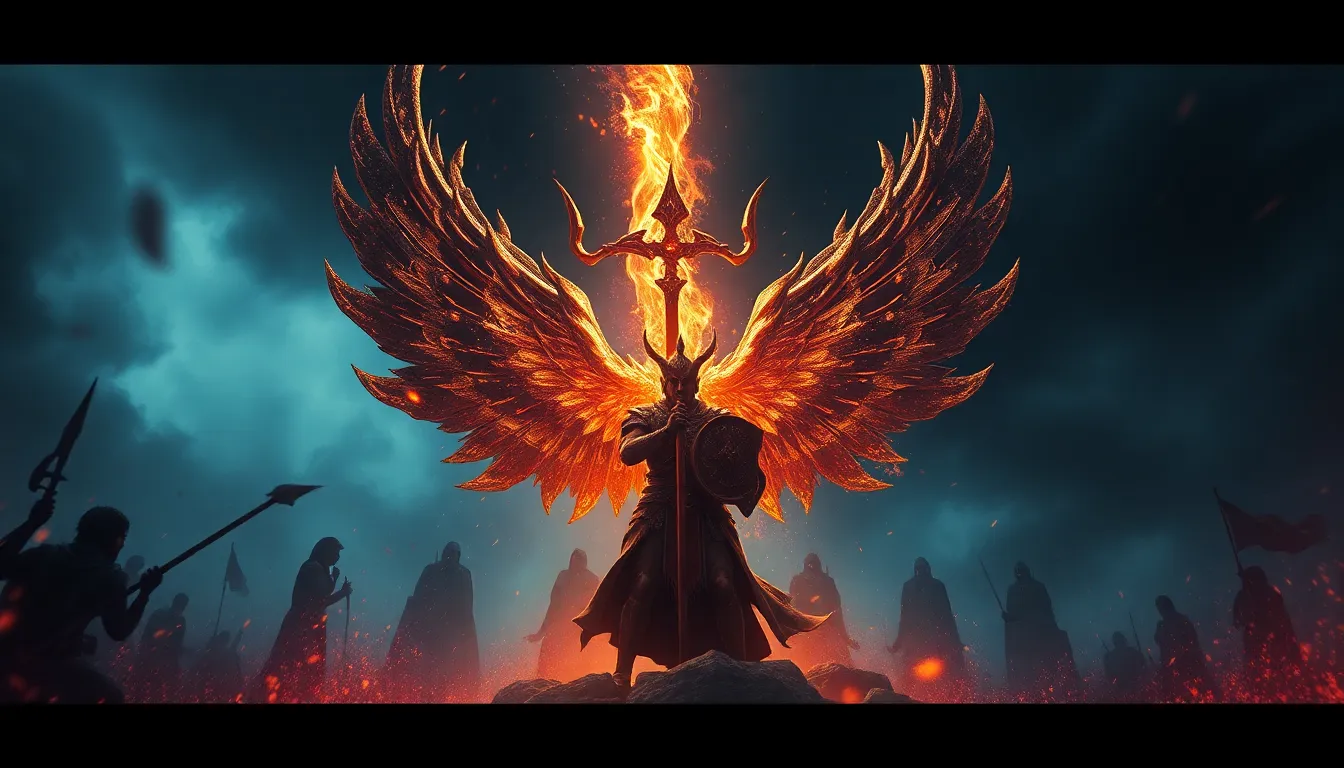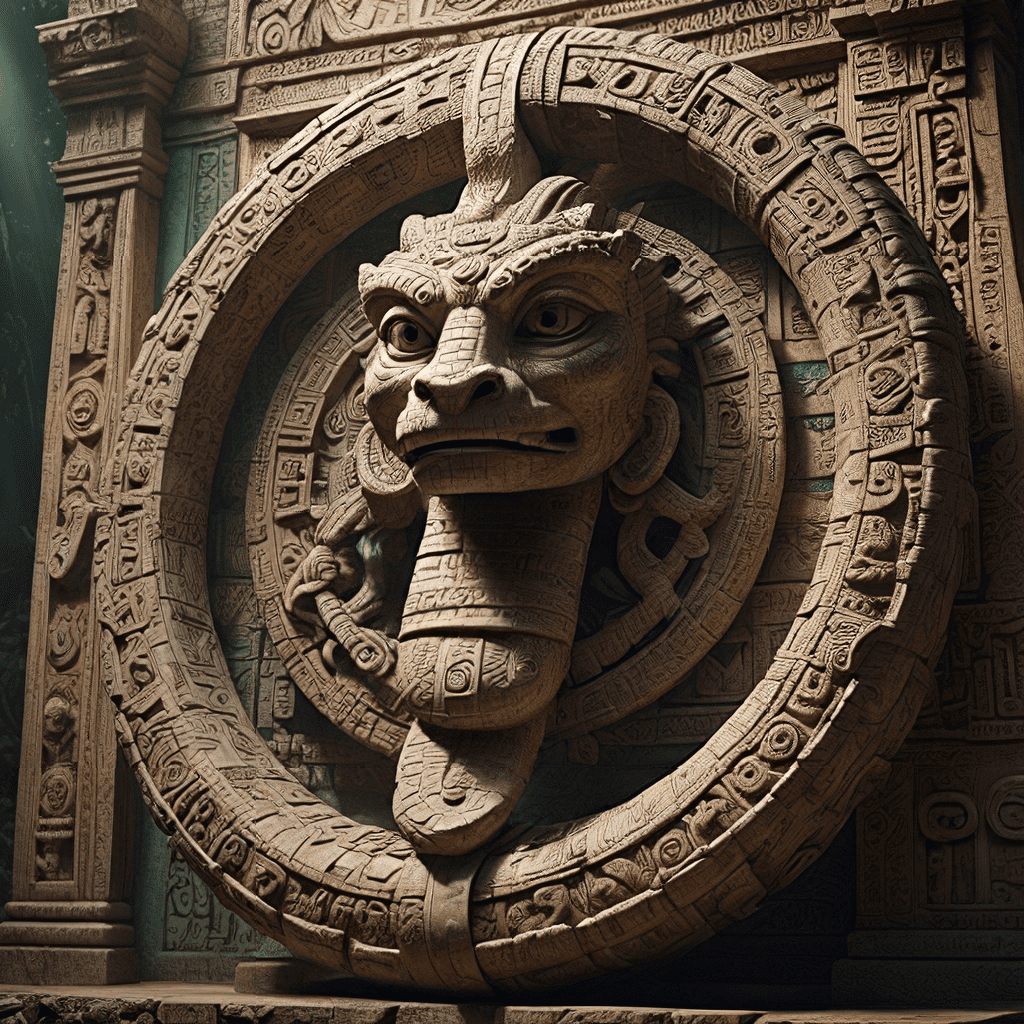The Myth of Kubera: The God of Wealth in Hinduism
I. Introduction
In the sprawling tapestry of Hindu mythology, the figure of Kubera stands as an enigmatic and revered deity. As the God of Wealth, Kubera presides over material abundance and is considered the protector of merchants and traders. His myth, steeped in ancient lore and traditions, holds a significant place in the religious landscape of Hinduism.
II. Origins and Creation of Kubera
Kubera’s genesis is traced back to the blessings of Brahma, the primal creator god. As a demi-god of the Yaksha race, Kubera inherited wealth and prosperity from his father, Vishrava, and was appointed as the custodian of the heavens by Indra, the king of the gods.
III. Kubera’s Appearance and Attributes
Depictions of Kubera often portray him as a portly figure with a fair complexion and opulent attire. His three legs symbolize stability, while his potbelly represents abundance. Kubera’s iconography is adorned with symbols of wealth, such as a money bag, a club, and a conch shell.
IV. Kubera’s Worship and Rituals
Hindu devotees revere Kubera as the bestower of material prosperity. He is worshipped through prayers, offerings, and rituals. Temples dedicated to Kubera can be found throughout India, and his festival, Akshaya Tritiya, is celebrated with great fervor.
V. Kubera’s Role as the God of Wealth
Kubera’s primary association is with material wealth and abundance. He is believed to govern the flow of money and trade, and is invoked by merchants and traders seeking success in their ventures. Kubera is also considered the protector of hidden treasures and is sometimes depicted as the guardian of the eight directions.
atop Mount Kailash. It is described as a paradise, adorned with towering palaces, opulent gardens, and crystal-clear lakes. Kubera's palace, adorned with precious stones and shimmering gold, is the most splendid of all. His court is filled with celestial beings, including his followers, the Yakshas and Kinnaras.
VII. Kubera’s Relationships with Other Deities
Kubera's myth is intertwined with that of other Hindu deities. He is closely associated with Vishnu, the preserver god, and Lakshmi, the goddess of wealth. Kubera is believed to be the half-brother of Vishnu's avatar, Rama. However, Kubera's mythology also depicts a conflict with Ravana, the demon king of Lanka. Ravana, seeking to acquire Kubera's wealth, invaded Alaka and stole the celestial chariot, Pushpaka Vimana.
VIII. Regional Variations in Kubera’s Mythology
The myth of Kubera has undergone regional variations throughout India. In some parts of the country, Kubera is known as Dhanapati, the lord of wealth, and is worshipped as the primary deity of merchants. In other regions, his role as the god of wealth is shared with deities like Lakshmi or Ganesha. Cultural adaptations have shaped Kubera's mythology, leading to different names, forms, and symbolic representations across India.
IX. Kubera’s Symbolism and Significance Today
Kubera's image is often found in Hindu art and iconography. Sculptures and paintings depict him seated on a throne, holding his symbols of wealth. Kubera's potbelly and three legs have become iconic symbols of abundance and prosperity. In contemporary Hinduism, Kubera continues to be revered as the god of wealth and success. Devotees pray to him for financial stability, business prosperity, and the fulfillment of material desires.
X. Conclusion
The myth of Kubera, the God of Wealth in Hinduism, is a captivating tale of origins, power, and the pursuit of material abundance. From his creation by Brahma to his reign over Alaka, from his association with Vishnu and Lakshmi to his conflict with Ravana, Kubera's story encapsulates the complexities and richness of Hindu mythology. His enduring legacy as the bestower of wealth continues to inspire and resonate with devotees to this day, making him an integral part of the Hindu pantheon.
FAQ
Who is Kubera in Hinduism?
Kubera is the God of Wealth in Hinduism, presiding over material abundance and prosperity.
What are Kubera’s main attributes?
Kubera is depicted as a portly figure with a fair complexion, adorned with symbols of wealth such as a money bag, club, and conch shell.
Where does Kubera reside?
Kubera's celestial abode is Alaka, a magnificent city located atop Mount Kailash.
What is the significance of Kubera in Hindu mythology?
Kubera is revered as the bestower of wealth and success. Devotees pray to him for financial stability, business prosperity, and the fulfillment of material desires.
How is Kubera depicted in Hindu art?
Kubera is often portrayed seated on a throne, holding symbols of wealth such as a money bag and club. His potbelly and three legs are iconic symbols of abundance and prosperity.



